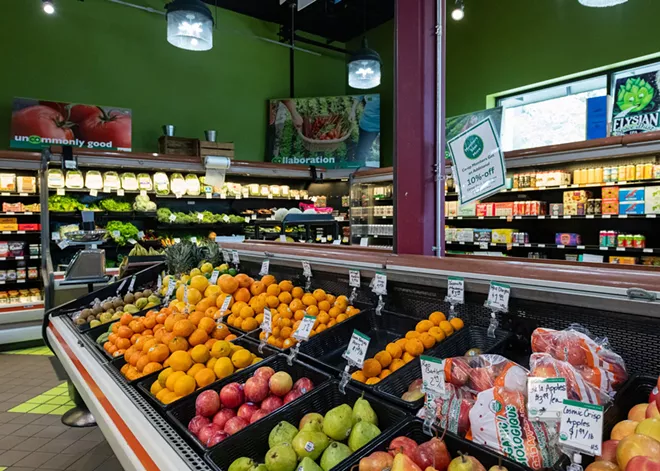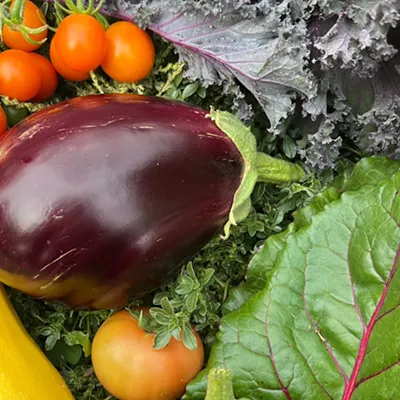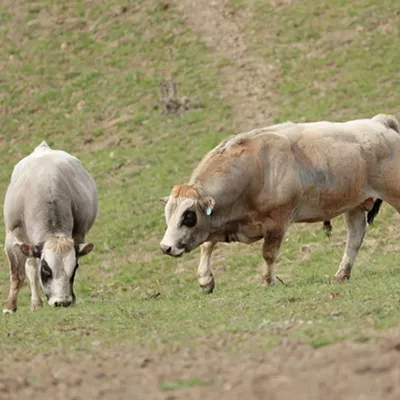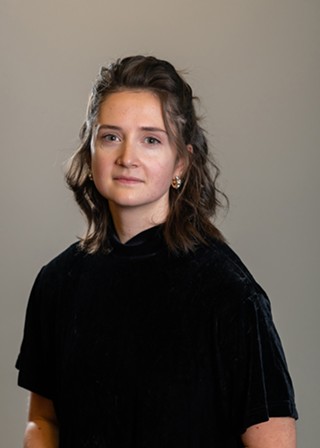This city loves its stickers. Peep a water bottle or guitar case and you're bound to see the Garbage Goat, Ribby the Redband Trout or "Spokane doesn't suck." If you're really paying attention, you might see a rare decoration: "I own a grocery store with my friends."
In Spokane, some people do own a grocery store with their friends. You can own it with them if you want.
Main Market Co-op is Spokane's only independent, nonprofit grocery cooperative, owned by community members and committed to feeding and supporting people in downtown Spokane and beyond. This uncommon business model positions Main Market to be especially effective in fighting food insecurity, supporting local farmers and reinvesting into the local economy.
But it also makes the tiny grocer more vulnerable to economic shocks. With fewer people downtown, the end of COVID loans, and dwindling support from the community, Main Market might have to close by the end of the year. If the grocer shuts down, the poorest ZIP code in Spokane, 99201, is at risk of becoming a food desert.
"I think what's missing is that connection to Spokane, that this is their co-op," says Courtney Shirk, Main Market's outreach manager. "Everyone can come here. There's a price point for every income level. And the food is good — it's healthy, it's local. It's not paying into the Krogers and Vons that are going to merge and monopolize. We're very small and independent, but we have a big heart for the community. That's the focus."
Main Market is on the corner of the busy intersection of Main Avenue and Browne Street, just a block south of the Spokane Convention Center. Before the pandemic, there was plenty of foot traffic on downtown's east end thanks to conference attendees. Out-of-towners and downtown workers would line up at Main Market's deli counter and make up a sizable lunch crowd.
During the pandemic when travel, commuting and dining out froze — and people became more nervous to grocery shop in person — federal Paycheck Protection Program loans kept the grocer afloat. But now those loans have been spent and, like in many cities, they say downtown foot traffic remains below pre-pandemic levels. Visit Spokane expects convention attendance to be back in full force by 2025, but that's not soon enough for the market.
"It's just far off enough," Shirk says.
Moving locations doesn't make sense financially or socially. Main Market's mission is to be an oasis in an area where about half the population is under the federal poverty line. Even though the store stocks some high-end products, it's not a luxury grocer. The influx of dollars from high-income shoppers allows it to forfeit profits in other areas in order to feed low-income neighbors.
For example, Main Market just dropped the price of all Field Day products, its in-house brand of staples, by 40%. After this price drop, the store won't make any money on the brand. That's more than 230 everyday items — things like pasta, frozen food and canned goods — that the consumer is getting at wholesale price. These products also happen to all be organic.
"The focus on dropping those prices is to serve our neighbors," says Shanon Davis, Main Market's general manager. "To get people in the door who do think that we're expensive to see that we're not."
Main Market partners with over 100 local farms and vendors, featuring fresh produce and promoting nutritionally dense foods. It participates in the SNAP produce match program, usually found at farmers markets, which essentially doubles the amount of fresh or frozen produce EBT users can buy for the same price. It also serves $5 community dinners on Thursday nights to anyone who wants a cheap, healthy meal without the cleanup.
"That's a part of serving the community," Shirk says. "We don't make money on that. But it's a way we can be there for the people in the area that need us."
A co-op model also allows community members to influence decision making and reinvest in their immediate economy. The Moscow Food Co-op is based on a similar model and is well-supported by residents of the Palouse. Shirk and Davis at Main Market are trying to figure out how to get Spokanites to feel the same sense of ownership and enthusiasm.
Anyone can become a member-owner of Main Market. For a one-time fee of $180 or an annual $10 fee paid until that $180 is reached, anyone can join. Member-owners get voting rights, special discounts, bulk order perks and eligibility for a year-end patronage refund at the end of the year, at the board's discretion if the market's profitable. Most years, Main Market hasn't been profitable, and its board focuses on reinvesting into the store instead.
"No one really owns us," Davis says. "We're owned by the membership, and we're owned by the community."
Each month, Main Market's "Round Up" program supports a different local charity that reinvests directly into Spokane. Previously when customers rounded up to the nearest dollar at the register, those extra cents went to organizations like Maddie's Place, Odyssey Youth Movement, Spokane Humane Society or the Lands Council.
This May, Main Market is partnering with Rick Clark and Giving Back Spokane to help raise money for Second Harvest's Bite2Go program, which provides free meals each summer to students who'd typically rely on school lunches. It's another way the market is trying to prove its commitment to every member of the community. But it's unclear if they'll get that kind of commitment back.
"I believe in the co-op model and just the tagline of 'I own a grocery store with my friends,'" says Davis. "I don't think that's something that any other grocery store can say."
"It'd be so wonderful if our community was able to rally and understand how necessary a co-op is," adds Shirk, "so that we can continue to give back to the community and give more to the community."
Editor's Note: This story was updated on May 13 to correct the direction Main Market is located in relation to the Spokane Convention Center.


























